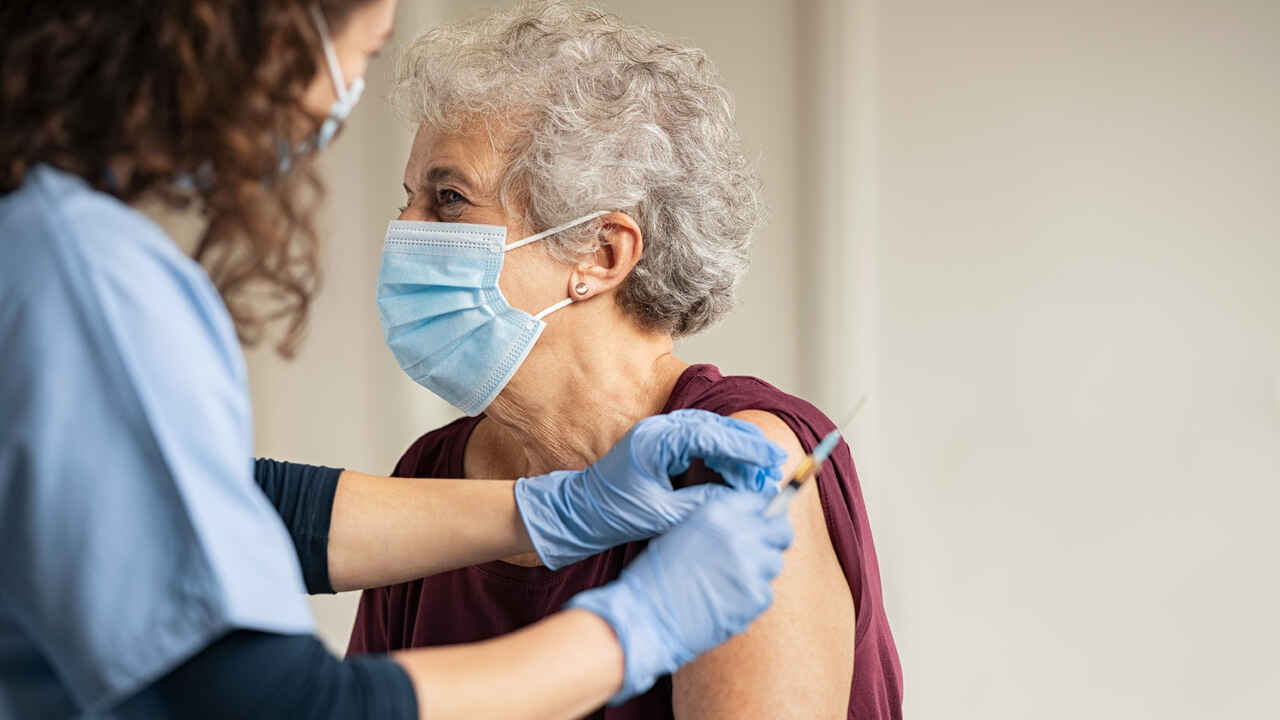
COVID Vaccine Adult Information
by Infectious Disease Specialist, Tatiana C. Saavedra, MD
Vaccines come in several varieties:
-
-
- Live attenuated (ex: MMR)-weakened form of the virus; it acts as an antigen and stimulates the body to create an antibody response
- Inactivated virus (ex: most seasonal influenza)-killed version of the virus; the killed form acts as an antigen and stimulates the body to create an antibody response
- Subunit, recombinant, polysaccharide, conjugate vaccine (ex: pneumococcal)-contain parts of the organism that acts as the antigen and stimulates the antibody response. They do not contain the organism itself.
- Toxoid vaccines (ex: Tetanus)-contain a toxin made by the organism that causes the disease. The toxin acts as the antigen that stimulates the body to make antibodies, but the antibody response is only to a specific part of the organism, not the whole
-
SARS-CoV-2 mRNA vaccine:
mRNA vaccines have been developed by Pfizer and Moderna, and have been FDA approved for EUA.
-
-
- Pfizer-BioNTech: use mRNA to create receptor binding domain of the spike protein of SARS-CoV-2. The spike protein is what the virus uses to attach to and enter the cell.
- Moderna: use mRNA to actually create the SARS-CoV-2 spike protein stabilized in its pre-fusion confirmation
- The mRNA is degraded after it has been translated (in the cytoplasm; it never enters the nucleus)
-
Common Questions:
How is an mRNA vaccine different from other existing vaccines?
-
-
- mRNA vaccines contain messenger RNA, which is single stranded RNA that complements DNA
-
- mRNA vaccines are made in the lab—mRNA is encapsulated within nanoparticles. Once the mRNA is translated, protein antigen is formed and that’s the antigen that triggers the immune response.
- mRNA stays in the cytoplasm, it does not enter the nucleus, therefore it cannot be incorporated into our genome
-
- The concept of mRNA vaccines was developed in the 1990s but technology was not advanced enough at that time. Prior to the pandemic, mRNA vaccines targeting HIV, rabies, Zika, and influenza were in clinical trials.
- mRNA vaccines contain messenger RNA, which is single stranded RNA that complements DNA
-
How long will people be protected?
-
-
- It is unknown at this time how long protection will last since study patients have not been followed for a long enough period of time.
-
What advantage does getting vaccinated provide if mask wearing is still beneficial?
-
-
- The vaccine protects YOU from getting SARS-CoV-2 by giving you immunity to the virus.
- We do not know whether the vaccine will prevent and individual from carrying SARS-CoV-2 and spreading it to others.
- Remember, by wearing a mask (unless you are wearing an N95 respirator), you are not protecting yourself from getting the virus, but you are protecting others around you.
-
Safety:
-
-
- Both Pfizer and Moderna have good safety profiles.
- Few local injection site reactions; very few serious side effects (<1%).
- There have been no documented cases of Guillain-Barre Syndrome (GBS).
-
- People with a history of GBS may receive the mRNA COVID-19 vaccine.
-
- There have been a few documented cases of Bell’s Palsy.
-
- 4 cases noted in each vaccine trial, both Pfizer and Moderna
-
- There is no concern for the development of traverse myelitis.
-
If you miss the follow up vaccination, do you need to repeat the series?
-
-
- The second dose should be scheduled at your earliest convenience.
-
Can this vaccine be given with other vaccines?
-
-
- Since the safety and efficacy of mRNA vaccines is not known when administered with other vaccines, this vaccine should be given alone with a minimum of 14 days before or after any other vaccine.
-
Any contraindication to being on an anticoagulant (blood thinner)?
-
-
- No, but you should inform the vaccination provider since you may bleed a little more or longer than usual.
-
Should patients medicate with ibuprofen or acetaminophen?
-
-
- We DO NOT recommend medicating with Ibuprofen after or prior to receiving the COVID vaccine. (this only applies to people with COVID infection that have symptoms that have not responded to Tylenol therapy) If you develop any symptoms from your vaccine, you may medicate with Tylenol, as directed on the bottle, to help alleviate the symptoms. Avoid Ibuprofen since this is an NSAID and works as an anti-inflammatory. We want your immune system to respond to the vaccine and taking Ibuprofen prior to vaccination may impair the way your body’s immune system responds to the vaccine.
-
Can patients with a history of anaphylaxis to food/non-medications receive this vaccine?
-
-
- YES
-
Why is it necessary to vaccinate people who have had COVID?
-
-
- Since we do not know how long immunity after COVID-19 infections lasts, and people have had variable immune responses after having COVID, we recommend vaccination with the mRNA vaccine.
- Vaccination of individuals with current SARS-CoV-2 infection should be deferred until the person has recovered from acute illness and criteria have been met to discontinue isolation.
-
What about people who have had COVID within the last 90 days?
-
-
- Current evidence suggests that reinfection is uncommon in the 90 days after initial infection.
- So, persons with documented acute SARS-CoV-2 infection in the prior 90 days may delay vaccination until the end of this period, if desired.
-